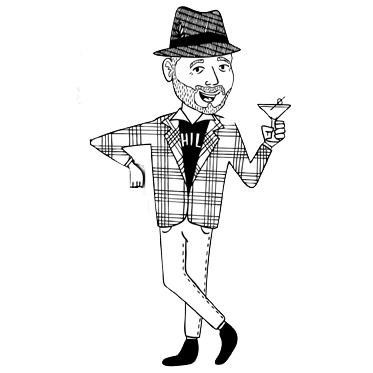 An enormous riot started in Philly on this date in 1964, wrecking North Philly, and while the looters may have gotten a few free goods, they destroyed any hope of future businesses coming to the area for decades. While local leader Cecil B. Moore tried to stem the looting, people ran wild, stealing everything they could get their hands on. This from TIME’s 1964 report on the story:
An enormous riot started in Philly on this date in 1964, wrecking North Philly, and while the looters may have gotten a few free goods, they destroyed any hope of future businesses coming to the area for decades. While local leader Cecil B. Moore tried to stem the looting, people ran wild, stealing everything they could get their hands on. This from TIME’s 1964 report on the story:
Rioters ran through the streets, shattered virtually every storefront window in a four-square-mile area. Looters dashed into the stores, grabbed racks of clothing, cases of liquor, groceries, furniture—anything they could move. They overturned cars, set fires, burned down a hat shop. Burglar alarms rang constantly.
Negro Leader Stanley Branche stood on a box at a street corner, used a bullhorn to plead: “Please go home. Please go home. This is doing us no good.” The mob answered with hoots, threw stones, bricks and bottles at him, hit him in the leg. Philadelphia N.A.A.C.P. President Cecil Moore shouted: “Come out of that store! Quit looting that store!”
As for the police response, they decided to pull back and let the rioting go on. This was severely criticized by Frank Rizzo, and the mayhem that ensued helped his political rise to power.
Policemen, severely outnumbered by the rioters, were ordered by Police Commissioner Howard Leary, who grew up in what had been the Irish Catholic section of North Philadelphia and worked his way through Temple University Law School at night, to do nothing. Frank Rizzo, who was to become, before the end of the 1960s, the police commissioner, and by 1971, the mayor, and was in 1964 the famous, most admired, and most hated, cop in Philadelphia, intensely disliked this strategy, feeling that a strong show of police force would nip the riot in the bud. He called Leary “a gutless bastard.”
The riots destroyed the neighborhood.
By Sunday, the fury was all spent, but nearly every store on Columbia Avenue, the central shopping district of North Philadelphia, had been destroyed. The riot signaled the beginning of the end of North Philadelphia as a largely working-poor neighborhood…Many of the stores never reopened, and the neighborhood began its descent into the chaos of an underclass realm.
It was a depressing time to be in Philly, as a couple weeks later, the Phils started their famous swoon.
 Think you guys might get a kick out of this one: Roger Ebert talks about movie trivia and how much he loathes it: The fatal flaw in the concept of trivia is that it mistakes information for knowledge. There is no end to information. Some say the entire universe is made from it, when you get right down to the bottom, under the turtles. There is, alas, quite a shortage of knowledge.
Think you guys might get a kick out of this one: Roger Ebert talks about movie trivia and how much he loathes it: The fatal flaw in the concept of trivia is that it mistakes information for knowledge. There is no end to information. Some say the entire universe is made from it, when you get right down to the bottom, under the turtles. There is, alas, quite a shortage of knowledge.


